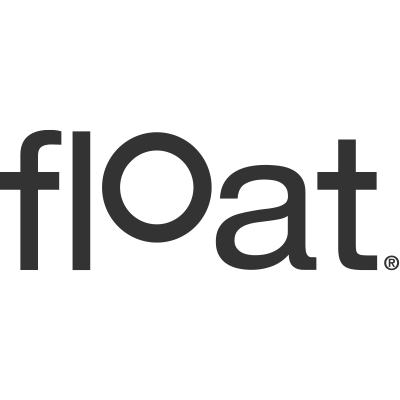ATD Blog
A Level Set on Learning Innovations in a Diverse and Dispersed Environment
Wed May 19 2021

Content
As ATD Government Workforce approaches, I’ve been talking with my fellow panel participants to get their initial thoughts on learning innovations during the pandemic. These speakers are experts in the field, have years of experience, are energetic, and have a lot to share. Below are our thoughts about why this is a vital topic for everyone.
As ATD Government Workforce approaches, I’ve been talking with my fellow panel participants to get their initial thoughts on learning innovations during the pandemic. These speakers are experts in the field, have years of experience, are energetic, and have a lot to share. Below are our thoughts about why this is a vital topic for everyone.
What did 2020 mean for your learners and the industry at large? What has changed in your day-to-day and the day-to-day for your learning audience?
Content
Chad Udell: We saw a significant uptick not only in what would typically be categorized as a casual interest in remote learning technologies but an actual focused discovery process on what new tools in the space were enabling modern learning ecosystems to grow and flourish. Everything from microlearning to mobile-friendly learning experience platforms seem to be coming into focus for organizations and are becoming vital parts of the learning technology landscape. In the new hybrid approach to working—some people are working from home, and some are coming into the office—it is clear that the ways people seek to engage with relevant and timely learning content are diversifying. Organizations that take advantage of this desire for multiple learning paths by offering heterogenous tools and platforms will benefit from this interest and see effective outcomes.
Chad Udell: We saw a significant uptick not only in what would typically be categorized as a casual interest in remote learning technologies but an actual focused discovery process on what new tools in the space were enabling modern learning ecosystems to grow and flourish. Everything from microlearning to mobile-friendly learning experience platforms seem to be coming into focus for organizations and are becoming vital parts of the learning technology landscape. In the new hybrid approach to working—some people are working from home, and some are coming into the office—it is clear that the ways people seek to engage with relevant and timely learning content are diversifying. Organizations that take advantage of this desire for multiple learning paths by offering heterogenous tools and platforms will benefit from this interest and see effective outcomes.
Content
Sae Schatz: Last year was filled with chaos, but from that crisis came opportunities—opportunities to reinvent the reputation and purpose of distributed learning, and to reimagine its uses around the world. Distributed learning emerged as a silver lining to the year’s hardships, but this community was working on modernizing learning even before the pandemic. The next generation of learning promises to radically shift the paradigm through technology, data-centric methods, mass customization, globalized social learning, and diverse and flexible pathways toward success. So, why come to this talk? Join a timely discussion about the future of learning—not just as a reaction to the obstacles of 2020 but as a remarkable leap ahead to face the challenges of tomorrow.
Sae Schatz: Last year was filled with chaos, but from that crisis came opportunities—opportunities to reinvent the reputation and purpose of distributed learning, and to reimagine its uses around the world. Distributed learning emerged as a silver lining to the year’s hardships, but this community was working on modernizing learning even before the pandemic. The next generation of learning promises to radically shift the paradigm through technology, data-centric methods, mass customization, globalized social learning, and diverse and flexible pathways toward success. So, why come to this talk? Join a timely discussion about the future of learning—not just as a reaction to the obstacles of 2020 but as a remarkable leap ahead to face the challenges of tomorrow.
Content
Jennifer Murphy: 2020 might have signified the end of “distributed learning.” Instead of being an edge case, learning solutions that accommodate how people are working, collaborating, and training remotely became our default way of doing business. As a result, distributed learning is now an inherent part of learning. Much like yoga pants and food delivery services, remote work was elevated from something nice to have to a critical aspect of daily life. One of the lessons that came to the forefront is something we’ve known for a long time: If it doesn’t work for everyone, it works for no one. It’s uncertain what the next few years will look like, but it is clear that it will be different. As L&D professionals, it’s our job to make sure that when it comes to learning technology, we keep the parts of 2020 that were good and improve upon the parts that weren’t. I’m excited to have an opportunity to share thoughts on the future of learning technology with this panel.
Jennifer Murphy: 2020 might have signified the end of “distributed learning.” Instead of being an edge case, learning solutions that accommodate how people are working, collaborating, and training remotely became our default way of doing business. As a result, distributed learning is now an inherent part of learning. Much like yoga pants and food delivery services, remote work was elevated from something nice to have to a critical aspect of daily life. One of the lessons that came to the forefront is something we’ve known for a long time: If it doesn’t work for everyone, it works for no one. It’s uncertain what the next few years will look like, but it is clear that it will be different. As L&D professionals, it’s our job to make sure that when it comes to learning technology, we keep the parts of 2020 that were good and improve upon the parts that weren’t. I’m excited to have an opportunity to share thoughts on the future of learning technology with this panel.
Content
Alicia Sanchez : In its continued commitment to enhance acquisition outcomes, DAU has been undergoing a major transformation since 2019. Several Pentagon-level initiatives, including new contracting pathways and the Back to Basics memo, have shaped opportunities for DAU to capitalize and expand on its legacy. The COVID-19 pandemic created a wrinkle in the transformation trajectory but provided DAU with an unforeseeable force multiplier to recreate the way learning assets are designed, developed, and delivered. The rapid switch to an online format was made achievable because of, not despite, DAU’s progress toward a modern learning platform designed to provide learners with personalized, relevant, high-quality learning experiences. The future is still unknown, but DAU has doubled down on what it's learned and is ready to bring the future learner closer to today than ever. Come learn more about how this community grows stronger together.
Alicia Sanchez: In its continued commitment to enhance acquisition outcomes, DAU has been undergoing a major transformation since 2019. Several Pentagon-level initiatives, including new contracting pathways and the Back to Basics memo, have shaped opportunities for DAU to capitalize and expand on its legacy. The COVID-19 pandemic created a wrinkle in the transformation trajectory but provided DAU with an unforeseeable force multiplier to recreate the way learning assets are designed, developed, and delivered. The rapid switch to an online format was made achievable because of, not despite, DAU’s progress toward a modern learning platform designed to provide learners with personalized, relevant, high-quality learning experiences. The future is still unknown, but DAU has doubled down on what it's learned and is ready to bring the future learner closer to today than ever. Come learn more about how this community grows stronger together.
What’s Next?
Content
There you have it—four experts, four points of view. I cannot wait to get together with them and share an hour of focused talk and Q&A on this topic. It’s sure to be provocative and insightful. Please join us May 25 at 11:15 a.m. ET and be part of this important discussion at ATD Government Workforce .
There you have it—four experts, four points of view. I cannot wait to get together with them and share an hour of focused talk and Q&A on this topic. It’s sure to be provocative and insightful. Please join us May 25 at 11:15 a.m. ET and be part of this important discussion at ATD Government Workforce.

